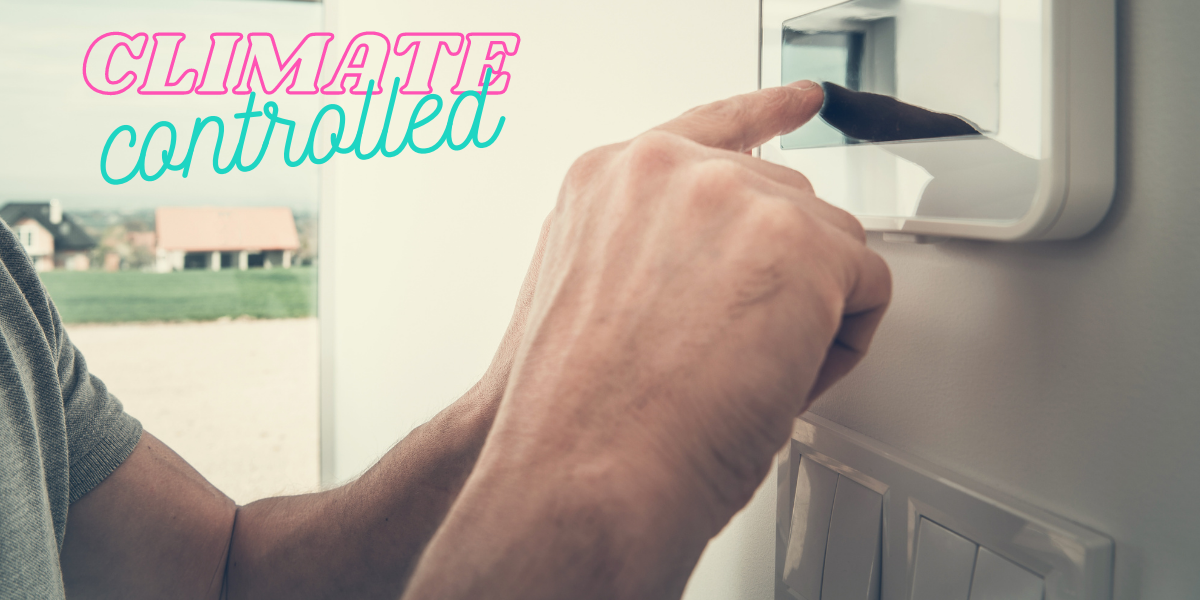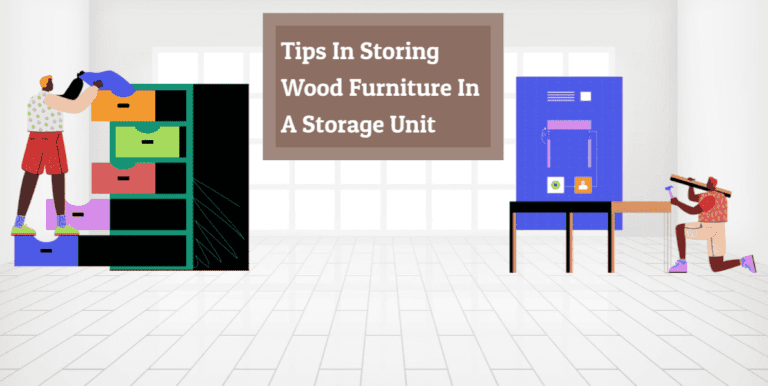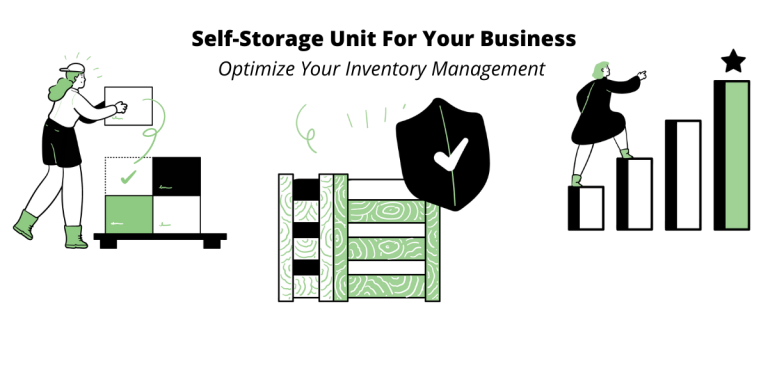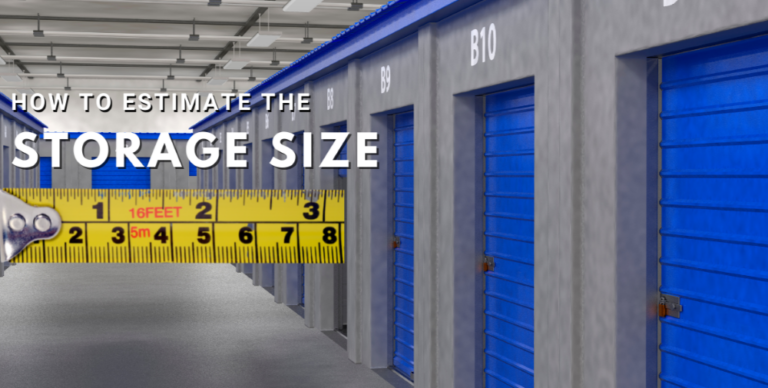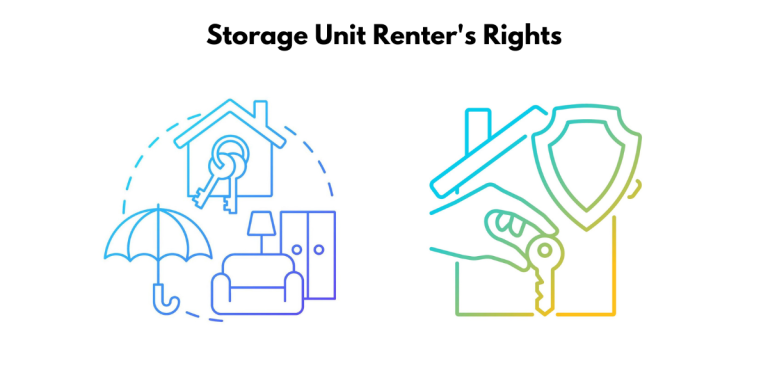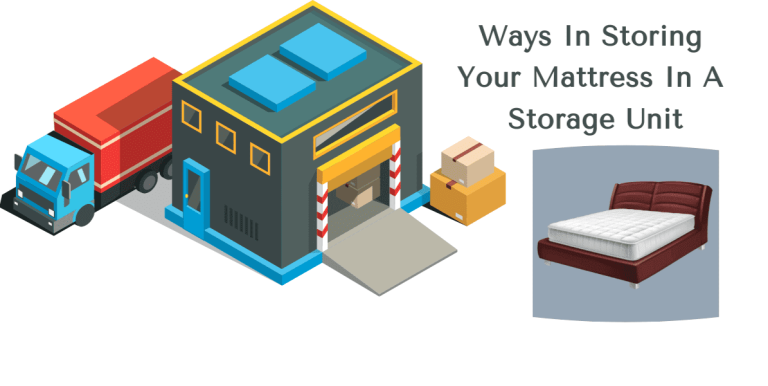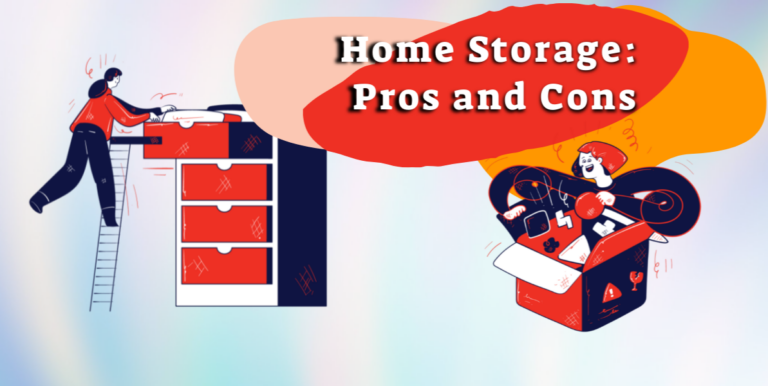The Benefits of Climate Controlled Storage: Do You Really Need It?
Self-Storage with Climate Control
Are you one of those people who love to plan and organize everything? Do you feel your life wouldn’t be complete without a meticulously organized desk or closet?
If so, self-storage with climate control might be the perfect solution.
What is self-storage with climate control, and why do some people think it’s a necessary part of their lives? Read on to find out.

What is self-storage with climate control?
Climate control in self-storage allows tenants to store items in a controlled environment, preventing the accumulation of moisture and insects. Self-storage with climate control can also provide added security for tenants by deterring theft and vandalism.
Climate control is important when choosing a self-storage unit, especially if you are storing valuable or delicate items. If you are unsure whether or not you need climate control, speak to a storage expert who can help you determine the best climate-controlled storage solution for your needs.
How does climate-controlled storage work?
A climate-controlled storage unit provides a protective environment for belongings by keeping them within a certain temperature range. This prevents damage from heat or cold and preserves the quality of stored items. Climate storage units are also convenient to access inside a storage facility.
What are the benefits of using self-storage with climate control?
Do you ever feel like you can’t keep your house clean because there always seems to be a mess? That’s not the only problem. You also have no place to put all your belongings when they are not in use. Self-storage with a climate control system is the perfect solution for people like you!
Here are some of the benefits:
Save on air conditioning costs
Climate-controlled self-storage can help to save on air conditioning costs by keeping the temperature and humidity at a consistent level. This can prevent damage to stored items, such as wood warping or cracking, fabric yellowing or degradation, and rust or corrosion of metal items. Additionally, automatic climate control can keep stored electronic components from getting damaged by extensive heating.
Better indoor air quality
Self-storage with climate control can help improve air quality by reducing humidity levels and removing pollutants from the air. Dehumidifiers and air purifiers can help reduce humidity levels, while air filters can remove impurities and bacteria from the air.
Protect items from weather damage
Climate-controlled storage units can protect items from weather damage by keeping them at a consistent temperature and humidity level. Proper packing can help items remain damage-free when stored in a climate-controlled unit. Boxes and packing supplies should be of high quality to limit the chance of damage in storage.
Store items in a secure environment
Climate control in self-storage can help protect your belongings from the elements and damage. High-quality boxes and packing supplies can reduce the chance of damage, and special storage bags can keep sensitive items like mattresses safe in extreme weather conditions.
Have peace of mind
Self-storage with climate control can help give you peace of mind when storing your items. With various convenient lease terms and access hours, you can easily store your items in a secure unit monitored by video surveillance. Additionally, courteous self-storage staff can always help with maintenance or up-front pricing issues.
What are the things that need to be considered when using climate-controlled storage?
Are you considering using climate-controlled storage? Here are some things to keep in mind:
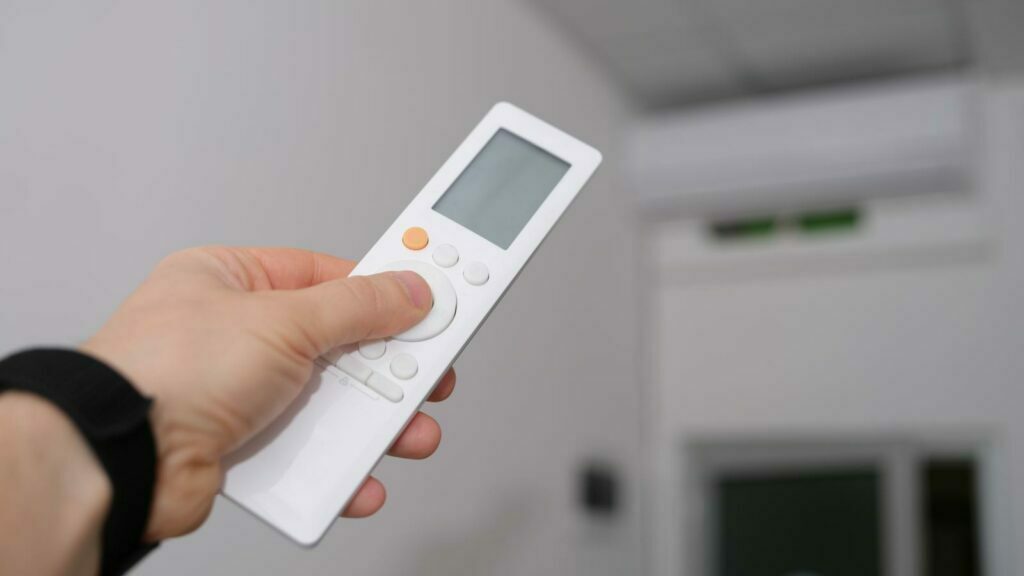
Temperature control
When using climate-controlled spaces, you need to consider the air temperature and humidity of the unit. You also need to control the preferred temperature inside the unit so that it is comfortable for your belongings.
Air circulation
Climate-controlled storage is important for storing items that are sensitive to humidity. Air circulation is important for climate-controlled storage, but humidity control is also important. If you’re storing items that are sensitive to humidity, air-cooled storage might not be the best option.
Security
When considering climate-controlled storage, it is important to consider the type of items being stored and the area’s climate conditions. Climate-controlled storage can protect belongings from extreme heat or cold and is ideal for storing sensitive items. Units are typically accessed during convenient hours and can be rented month-to-month.
Noise levels
Noise levels can have an effect on climate-controlled storage. If the noise levels are too high, it can cause a decrease in the effectiveness of climate-controlled storage.
Lighting
Better lighting can help reduce climate heating system and air conditioning costs and allow more control over vents, shading, lighting, misting, and temperature and humidity. This can be managed from a computer or mobile phone.
What items need climate-controlled storage?
Are you planning to rent a storage unit? Here’s a list of items that require climate control:
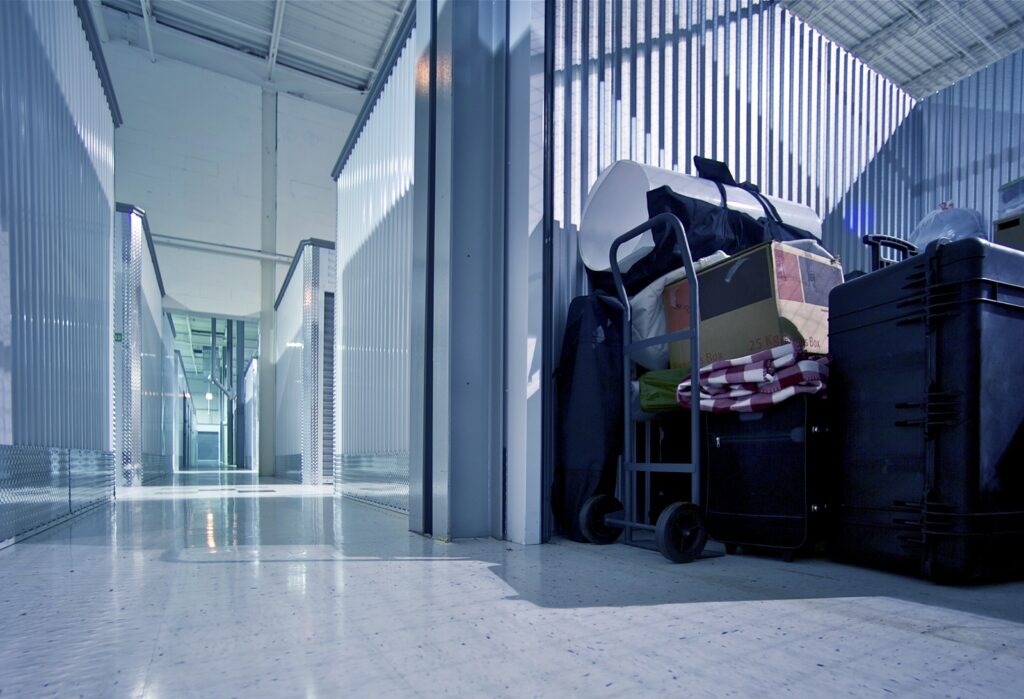
Important documents made of paper
Climate-controlled storage is necessary for items that are sensitive to extreme weather conditions. For example, heat or cold can damage vinyl records, CDs, DVDs, and wooden furniture. Climate-controlled storage units maintain a moderate temperature and humidity level to keep stored items in good condition.
Electronics
Climate-controlled environments are beneficial for storing items that are susceptible to damage from extreme weather conditions. These items include electronics, media, furniture, artwork, books, newspapers, musical instruments, wine, and collectibles. Storing these items in a climate-controlled environment can help to prevent damage.
Musical instruments
Certain items must be stored in a climate-controlled environment to prevent damage. These items include electronic devices and media, which can be sensitive to high humidity and extreme temperatures; furniture, which can also be damaged by extreme humidity or cold; and artwork, which is also sensitive to moisture and temperature changes. Therefore, climate control is a must for those wishing to store these items safely. Other items that may need to be stored in ideal conditions include musical instruments, wine, and collectibles. This is because they can easily be damaged if not stored properly.
Art
Electronics, media, and furniture can be damaged in extreme conditions. Storing these items in a climate-controlled environment can help to avoid damage. Artwork is particularly vulnerable to moisture damage and temperature changes, so it is important to store it carefully. Musical instruments are especially sensitive to humidity and temperature, so they should be stored in a stable environment. Collectible items, like antiques, should also be kept in stable storage conditions. Air purification and filtration are important in a climate-controlled environment to remove allergens and other contaminants. Humidity control is also necessary to maintain a comfortable environment, especially in dry climates.
Medications
Items that need to be stored in a climate-controlled environment include food and other perishables. The benefits of storing these items in a climate-controlled environment include that they will be fresher and more nutritious.
Antiques
Electronics, media, furniture, artwork, books, newspapers, musical instruments, and wine are all susceptible to damage if not stored in a climate-controlled environment. This is because they are vulnerable to moisture and temperature changes. Most collectible items should also be stored in stable and ideal conditions to prevent them from being damaged.
Are there any alternatives to climate-controlled storage?
Climate-controlled storage units can help you save money by protecting your stored items from damage caused by extreme temperatures. They can also make it more comfortable to visit your storage unit on hot or cold days. And because they are located inside a storage facility, climate-controlled units are typically more secure than standard storage units.
FAQs
Here’s a list of the most frequently asked questions about climate-controlled storage units:

What are the guidelines for climate-controlled storage?
When deciding what storage unit to rent, many people ask if they need a climate-controlled storage unit. The answer to this question depends on what you’ll be storing. If you plan on storing sensitive items that extreme temperatures could damage, you should consider renting a climate-controlled storage unit. Climate-controlled storage units maintain a moderate heating and humidity level, which helps to protect your stored belongings from the elements.
What are the prices of climate-controlled storage?
Climate-controlled storage is more expensive than standard storage units, but it is worth the extra expense in the long run. Storage companies offer a range of climate-controlled storage options, and prices can vary depending on the size and features of the unit. Climate control can help keep items in a storage unit from warping, cracking, or tearing and can also help prevent the yellowing or degradation of leather and fabrics. Climate control can ward off mildew, mold, and pests and reduce the chances of rust, corrosion, and weakening of metal items.
What temp should climate control be?
Climate control is a system that maintains a temperature within a given range, typically within the range of 18-24 degrees Celsius. A smart thermostat usually keeps it regulated.
Does furniture mold in storage?
Furniture is typically made of wood, metal, or upholstery; all three are susceptible to mold and mildew if they are not properly protected during storage. Moisture is the main culprit in mold and mildew growth, so keeping your furniture dry while it’s in storage is important. This can be done by sealing your items in cartons and using high-quality packing supplies to help limit moisture damage.
- The Clutter Hoarding Scale: Assessing the Severity of Your Problem - October 28, 2022
- Self-Storage Facilities FAQ – Answers to the most common questions about storage units - December 2, 2021
- Home Storage: The Perks and Hidden Risks of Storing Things at Home - November 11, 2021

